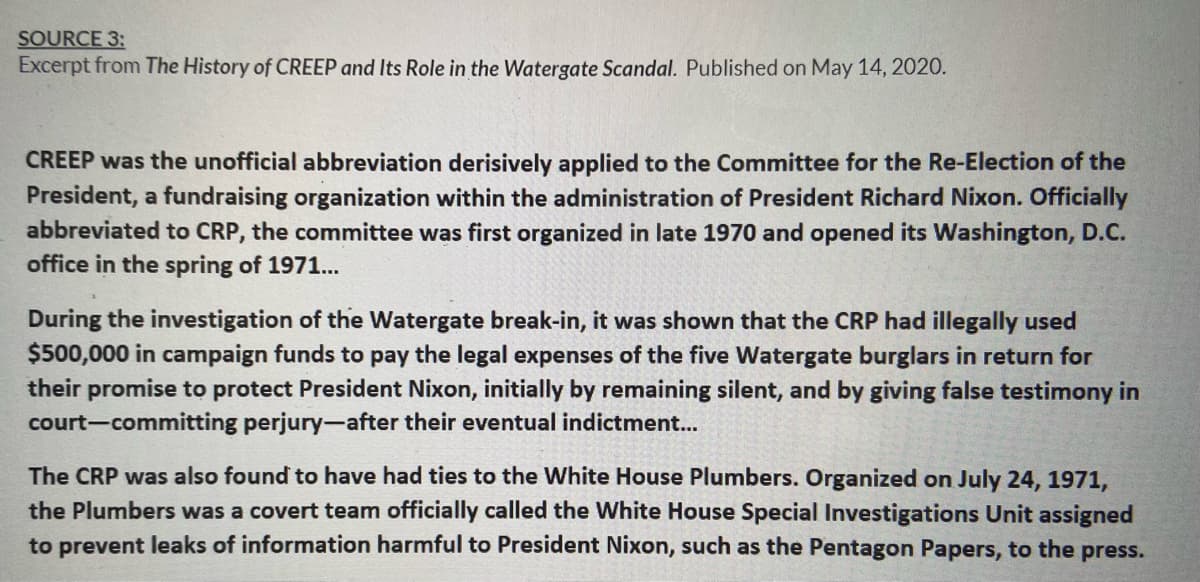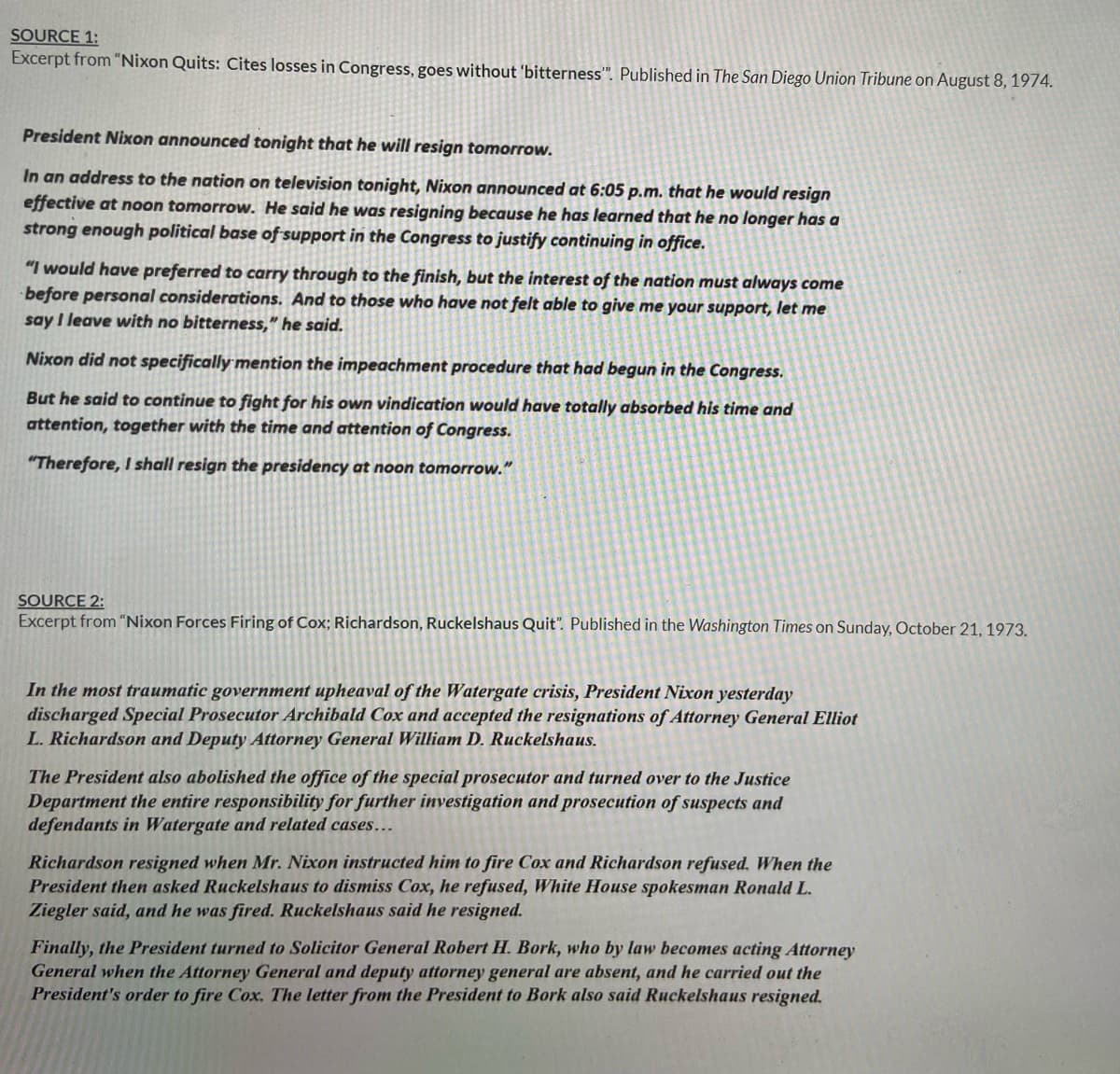Using the sources below and your knowledge of U.S. history, determine one reason why Richard Nixon, although he was elected twice as President and ever impeached, is often remembered as a disgraced political figure. Provide evidence and reasoning from the sources.
Using the sources below and your knowledge of U.S. history, determine one reason why Richard Nixon, although he was elected twice as President and ever impeached, is often remembered as a disgraced political figure. Provide evidence and reasoning from the sources.
Related questions
Question
100%
Answer the U.S. History question. Using the sources below and your knowledge of U.S. history, determine one reason why Richard Nixon, although he was elected twice as President and ever impeached, is often remembered as a disgraced political figure. Provide evidence and reasoning from the sources.

Transcribed Image Text:SOURCE 3:
Excerpt from The History of CREEP and Its Role in the Watergate Scandal. Published on May 14, 2020.
CREEP was the unofficial abbreviation derisively applied to the Committee for the Re-Election of the
President, a fundraising organization within the administration of President Richard Nixon. Officially
abbreviated to CRP, the committee was first organized in late 1970 and opened its Washington, D.C.
office in the spring of 1971...
During the investigation of the Watergate break-in, it was shown that the CRP had illegally used
$500,000 in campaign funds to pay the legal expenses of the five Watergate burglars in return for
their promise to protect President Nixon, initially by remaining silent, and by giving false testimony in
court-committing perjury-after their eventual indictment...
The CRP was also found to have had ties to the White House Plumbers. Organized on July 24, 1971,
the Plumbers was a covert team officially called the White House Special Investigations Unit assigned
to prevent leaks of information harmful to President Nixon, such as the Pentagon Papers, to the
press.

Transcribed Image Text:SOURCE 1:
Excerpt from "Nixon Quits: Cites losses in Congress, goes without 'bitterness". Published in The San Diego Union Tribune on August 8, 1974.
President Nixon announced tonight that he will resign tomorrow.
In an address to the nation on television tonight, Nixon announced at 6:05 p.m. that he would resign
effective at noon tomorrow. He said he was resigning because he has learned that he no longer has a
strong enough political base of support in the Congress to justify continuing in office.
"I would have preferred to carry through to the finish, but the interest of the nation must always come
before personal considerations. And to those who have not felt able to give me your support, let me
say I leave with no bitterness," he said.
Nixon did not specifically mention the impeachment procedure that had begun in the Congress.
But he said to continue to fight for his own vindication would have totally absorbed his time and
attention, together with the time and attention of Congress.
"Therefore, I shall resign the presidency at noon tomorrow."
SOURCE 2:
Excerpt from "Nixon Forces Firing of Cox; Richardson, Ruckelshaus Quit". Published in the Washington Times on Sunday, October 21, 1973.
In the most traumatic government upheaval of the Watergate crisis, President Nixon yesterday
discharged Special Prosecutor Archibald Cox and accepted the resignations of Attorney General Elliot
L. Richardson and Deputy Attorney General William D. Ruckelshaus.
The President also abolished the office of the special prosecutor and turned over to the Justice
Department the entire responsibility for further investigation and prosecution of suspects and
defendants in Watergate and related cases….
Richardson resigned when Mr. Nixon instructed him to fire Cox and Richardson refused. When the
President then asked Ruckelshaus to dismiss Cox, he refused, White House spokesman Ronald L.
Ziegler said, and he was fired. Ruckelshaus said he resigned.
Finally, the President turned to Solicitor General Robert H. Bork, who by law becomes acting Attorney
General when the Attorney General and deputy attorney general are absent, and he carried out the
President's order to fire Cox. The letter from the President to Bork also said Ruckelshaus resigned.
Expert Solution
This question has been solved!
Explore an expertly crafted, step-by-step solution for a thorough understanding of key concepts.
This is a popular solution!
Trending now
This is a popular solution!
Step by step
Solved in 3 steps
